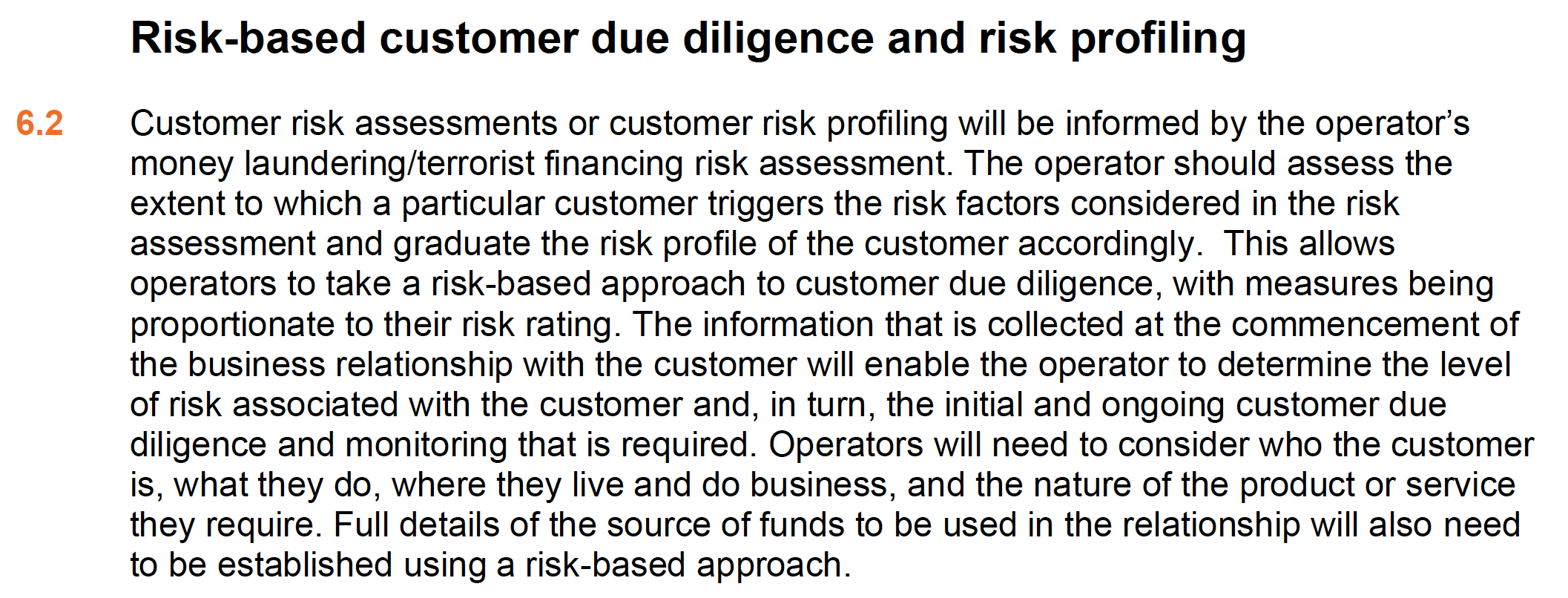Once the inherent financial crime risk is understood, it allows for better context of what risks the operator may be exposed to and subsequently what needs to be considered when assessing the risk of the customer.
Consideration can then be made on the data points used which would initially be obtained through the registration process and any due diligence information collected. Whilst data points like country are still important, given that the key financial crime risk may be fraud, operators may wish to consider additional data points such as the email address, phone number or device to be included.
Now the data points have been established, in line with the inherent financial crime risks, an operator can consider how the scoring itself will work. Whilst you may think a complex risk profiling model is best, that may not be the case as it needs to be scalable, easily modifiable and explainable to the regulators.
Finally once the scoring is complete, ensuring you map the output to your due diligence process is the final step. This will enable an operator to offer a lower friction process for lower risk customers whilst still being able to identify higher risk customers allowing the application of enhanced due diligence.
Dynamic Model
The profiling of an operator’s customers shouldn’t stop at onboarding though. In order to operate an effective customer risk profiling model which meets the regulatory requirements, mitigates the risk of financial crime and protects customers from harm from a responsible gambling perspective, operators should ensure it is dynamic. This means that rather than just using the data collected at onboarding to assess the customers risk, operators should use data collected from how the customer interacts with the product and also any additional due diligence obtained.
Responsible Gambling
It is no surprise that some of the more recent fines coming from the Gambling Commission relate to operators failure to protect its customers from a responsible gambling perspective alongside failures to have appropriate controls to guard against money laundering.
In May the Gambling Commission published tighter measures to be implemented by operators, as part of their COVID-19 response, to protect their customers during lockdown. These measures include various points on assessing their clients:
Review thresholds and triggers for new customers to reflect the operator’s lack of knowledge of that individual’s play and spend patterns
Conduct affordability assessments for individuals picked up by existing or new thresholds and triggers which indicate consumers experiencing harm - limiting or blocking further play until those checks have been concluded and supporting evidence obtained, and;
Implement processes that ensure the continual monitoring of their customer base – identifying patterns of play, spend or behaviours have changed in recent weeks.
Responsible gambling has strong links to financial crime with various cases documented being linked to those who were using stolen funds to spend. This means that responsible gambling is an important risk factor to be included within any operator's customer risk profiling model alongside the traditional financial crime risks mentioned above. Data points for consideration could be methods of payment, deposits and behavioural patterns.
If operator’s continue to ineffectively implement custom risk assessment models, and choose to not include a responsible gambling aspect, we can only expect more fines to be issued in the near future for both responsible gambling and money laundering failures.
How to approach creating a new customer risk assessment model
Here are FINTRAIL and TruNarrative’s key takeaways when considering a customer risk profiling model:
Understand the inherent risk your customers represent to the business
Ensure you select the correct data points unique to your clients and product offering
Make sure the risk profiling is dynamic and doesn’t just stop once the customer is onboarded
Consider the inclusion of responsible gambling within your customer risk profiling
Marry your due diligence process to your customer risk profiling
Take into consideration how you would implement your model using technology providers like TruNarrative to ensure if a players risk or behaviour changes, you get an instant alert and action
If you are interested in speaking to the FINTRAIL team about this or any other financial crime topic please get in touch with the team at: contact@fintrail.co.uk
This article is also available via TruNarrative’s website.







